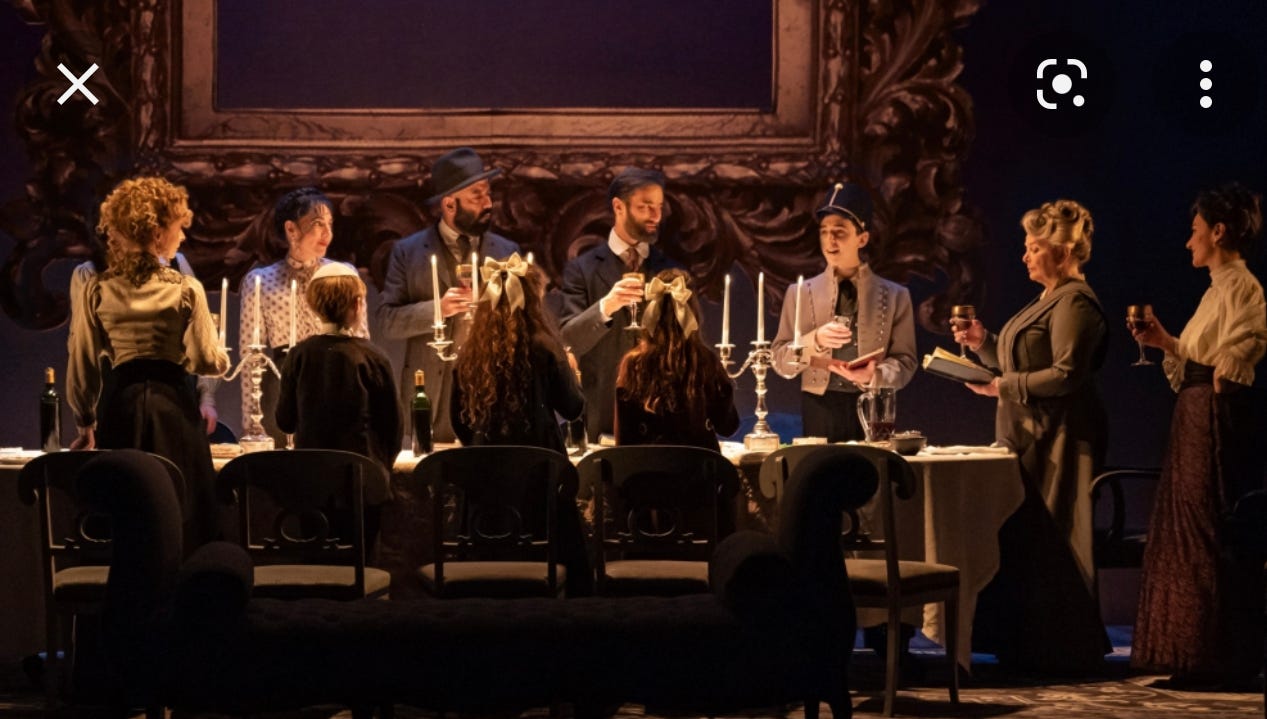Theater: “Leopoldstadt” by Tom Stoppard
Austria’s Jewish population numbered about 192,000 when Nazi Germany annexed the country in March 1938. By November 1942, only about 7,000 Jews remained. Approximately 65,000 Austrian Jews were killed in the Holocaust.
In Tom Stoppard’s stupendous new play “Leopoldstadt,” we see these events through the portrayal of one Viennese-Jewish family over the course of 56 years, starting in 1899. The matriarch Emilia (Betsy Aidem) presides over an assimilated Jewish family at the holidays (there’s a big Christmas tree with a Jewish star at the top). Her son Hermann (David Krumholtz), the head of the family’s prosperous textile business, and his mathematician brother-in-law Ludwig (Brandon Uranowicz) debate the status of Jews in Vienna, and Herzl and his nascent Zionist movement. “Jews in the desert? Never happen,” says Hermann.
Cut to 1924, as the small children in the first scene are now embracing the Roaring 20s as adults. Hermann’s son, Pauli (the brilliant Seth Numrich) is understandably bitter—he has lost an arm and an eye in WWI. Another child, Rosa (Jenna Augen) is visiting from America. Meanwhile, in Vienna, Marxism and proto-Fascism are fighting for predominance, as the new nation of Austria has been cut into a dozen different pieces after the War.
The scene in 1938–a particularly harrowing one—shows our family has fallen on hard times. With the Anschluss of Austria into Germany, Jews are forbidden basic civil rights and employment. Austrian Nazis, represented by a character known simply as Civilian (Corey Brill), barge into the family’s home and announce their home is being “requisitioned” by the state. They are given one night to pack their bags and report for transport.
The final scene is set in 1955 Vienna, when Nathan, Ludwig’s grandson (also played by Uranowicz), a survivor of the Holocaust, meets with a cousin who was brought to England as a young child, along their American cousin Rosa The meeting is ostensibly to recoup family art stolen by the Nazis. In contrast to the other two, the English cousin (purported to be Stoppard himself) is rather blasé about the horrors that befell the family—a situation Rosa attempts to remedy by sketching out the complex family tree.
Just like “Hamilton” should be required viewing by anyone who wants to understand our American Revolution, so should “Leopoldstadt” be required viewing by everyone who needs to understand the barbarism of mankind only 75 years ago. And if you think, like one of the characters says, “this could never happen again,” you just aren’t paying attention.
Beg, borrow or steal a ticket. Get standing-room only. But do not miss “Leopoldstadt.”
You’re welcome.


